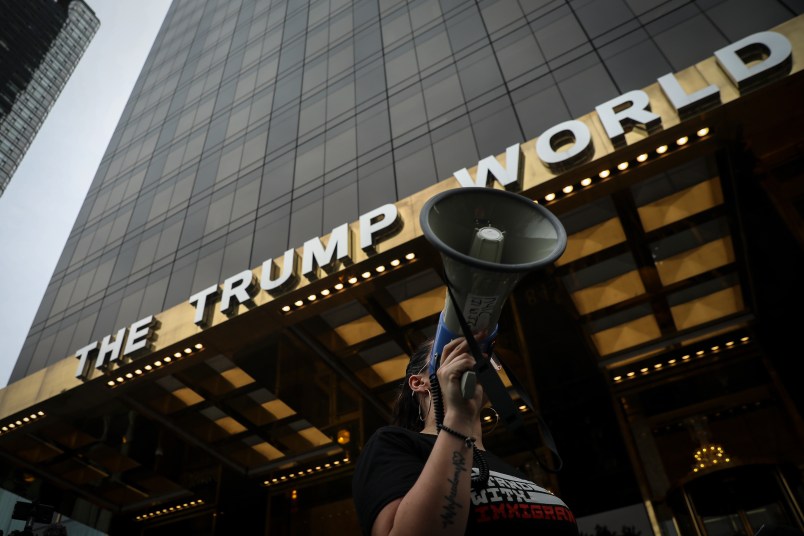A little-watched lawsuit filed by competitors of Donald Trump’s businesses was revived by a Manhattan federal appeals court on Friday, potentially opening another window into the President’s — and his business’s — financial records.
The case was brought by Citizens for Responsibility and Ethics in Washington (CREW), a watchdog group that filed the lawsuit in January 2017 on behalf of a group of businesses alleging that they had lost foreign government customers to the Trump Organization because the President’s businesses offered something they never could: favorable treatment from the White House.
In other words, the businesses claimed that Trump’s alleged violation of the Emoluments Clause — which prohibits the receipt of things of value from foreign governments — manifested itself in the business world as an example of unfair competition.
A New York federal judge dismissed the suit in 2017, before CREW appealed it.
The Friday ruling revives the case, allowing it — and potential discovery associated with how Trump has profited from foreign government business — to move forward absent any further appeal.
In the 2-1 ruling, the appeals court held back from ruling on the merits of the case.
The majority did, however, find it “plausible” that “in some significant number of instances, government officials will choose Trump hotels and restaurants in the hope that spending their dollars at Trump establishments will influence the President in their favor in governmental decisions.”
Calling the allegation an “unlawful market skew,” judges from the Second Circuit Court of Appeals ruled that not only do the businesses have standing to sue Trump over his alleged unfair competitive advantage, but that the Emoluments Clause itself gives them the basis to claim injury.
“This unlawful market skew directly affects Plaintiffs’ revenue and profits,” the opinion reads. “Every dollar of government patronage drawn to Trump establishments by the hope of currying favor with the President is a lost dollar of revenue that might otherwise have gone to Plaintiffs.”
That in part goes to the reality, as stated by the court, that Trump has something to offer that his competitors do not: “the opportunity to obtain favorable treatment from the President and the Executive branch in governmental decisions.”
The lower court in the case had earlier thrown out the lawsuit in part because it found that the Emoluments clause was not passed with the intention of preventing unfair competition; rather, it was enacted to prevent corruption and undue foreign influence in the White House.
But the appeals court held that the initial purpose of the clause didn’t matter, so far as the businesses were able to claim a legitimate injury that stemmed from Trump allegedly receiving emoluments.
Friday’s Second Circuit ruling is the first victory in months for those trying to hold President Trump accountable for allegedly violating the Emoluments clause.
The ruling follows a July opinion in the Fourth Circuit that threw out a case brought by state attorneys general on standing grounds. Another case — brought by members of Congress against the President — is on appeal, but that only came after the D.C. circuit signaled displeasure with a lower court’s decision to block a motion to dismiss.
The Second Circuit panel offered up a list of potential remedies that a court could enact as ways to force Trump to stop receiving emoluments. Those include a ban on foreign government officials patronizing Trump businesses, the President placing his companies in a blind trust, or a court forcing Trump to publicly disclose his “private business dealings with government officials through the Trump establishments.”
Read the opinion here:










